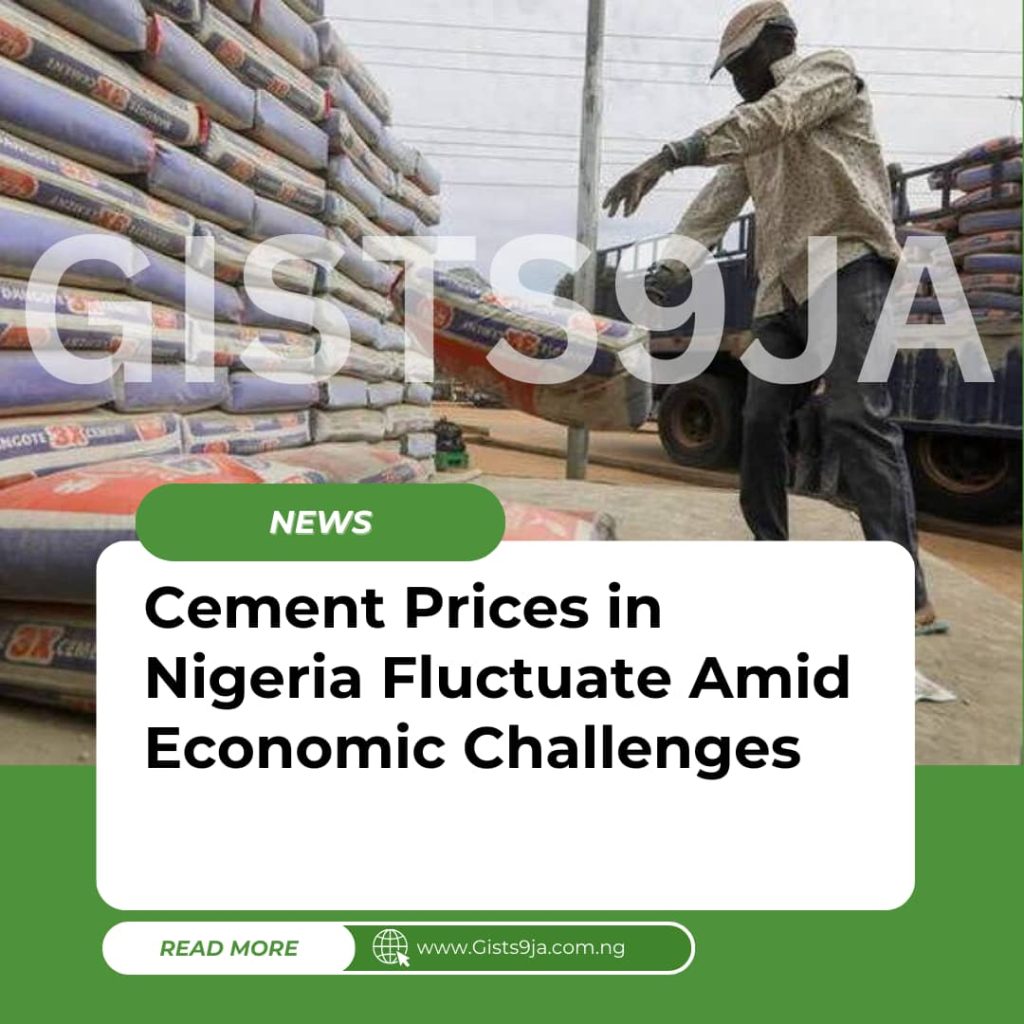
As of February 2025, cement prices in Nigeria have experienced significant fluctuations due to multiple economic factors, including currency devaluation, the removal of fuel subsidies, and shifting market dynamics.
These changes have had a profound impact on the construction industry and consumers across the country, influencing the cost of building projects and infrastructure development.
Current Cement Prices by Brand
Dangote Cement
Dangote Cement, one of Nigeria’s leading cement brands, is currently sold between ₦9,000 and ₦9,500 per 50kg bag, with regional variations. In Lagos, a bag of Dangote Cement is priced at approximately ₦9,600, while in Abuja, the cost stands around ₦9,400. The price disparities arise due to transportation expenses, supply chain factors, and local demand.
BUA Cement
BUA Cement had previously announced plans to reduce its cement prices to ₦3,500 per bag in late 2023 to make construction materials more affordable. However, this initiative was disrupted by market intermediaries who inflated prices, alongside broader economic challenges affecting production and distribution costs. As a result, BUA Cement is now sold at ₦8,000 to ₦8,500 per 50kg bag. In Lagos, the price is ₦8,000, while Abuja sees slightly higher rates at ₦8,300.
Lafarge Cement
Lafarge Cement offers various products at different price points:
- Lafarge Classic Cement – ₦9,500 per bag
- Elephant Supaset Portland Limestone Cement – ₦10,000 per bag
- Lafarge Water Shield Waterproof Cement – ₦10,500 per bag
These price variations reflect the specialized nature of certain Lafarge products, particularly those designed for high-strength construction and waterproofing applications.
Key Factors Influencing Cement Prices in Nigeria
Several economic and logistical factors contribute to the current volatility in cement pricing:
- Economic Policies and Currency Devaluation
- The devaluation of the Naira has increased the cost of imported raw materials, such as gypsum and clinker, which are essential for cement production.
- The removal of fuel subsidies has also led to higher transportation and production expenses, driving up cement prices.
- Supply Chain and Distribution Challenges
- Middlemen and distributors have been known to artificially inflate prices, making cement more expensive despite manufacturers’ efforts to stabilize costs.
- Delays in logistics, high fuel prices for transportation, and storage costs further contribute to price hikes.
- Regional Price Disparities
- Proximity to cement manufacturing plants affects pricing, as regions closer to factories often enjoy lower costs due to reduced transportation fees.
- In remote areas, distribution challenges and additional supply chain expenses lead to significantly higher cement prices.
Impact on the Construction Industry and Consumers
The fluctuating cost of cement has made construction more expensive, affecting both small-scale builders and large infrastructure projects. Many developers have had to pause or scale down projects due to unpredictable material costs, while individual consumers struggle with the rising cost of home construction.
Additionally, the volatility in cement pricing could have broader economic implications, as the construction sector plays a vital role in job creation and economic growth. If cement remains expensive, the affordability of housing and public infrastructure projects could be negatively impacted.
Conclusion
The persistent increase in cement prices highlights the urgent need for policy interventions to stabilize costs. Addressing issues such as middlemen price manipulation, production inefficiencies, and logistics bottlenecks could help ensure more stable pricing. Additionally, increasing domestic production capacity and investing in alternative energy sources for cement manufacturing may offer long-term solutions.
Until these challenges are effectively tackled, cement prices in Nigeria are likely to remain volatile, with significant implications for construction, real estate, and infrastructure development.





